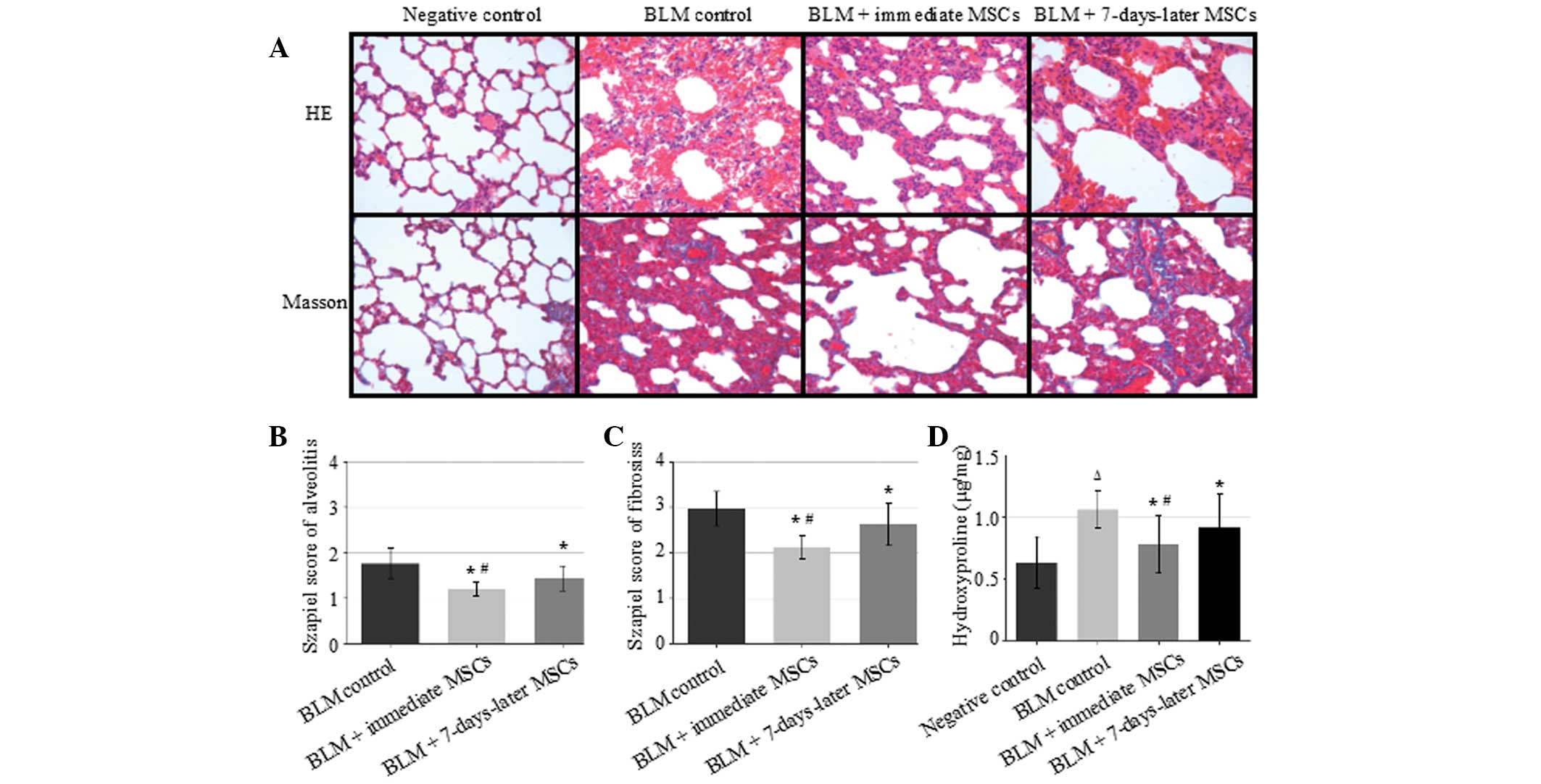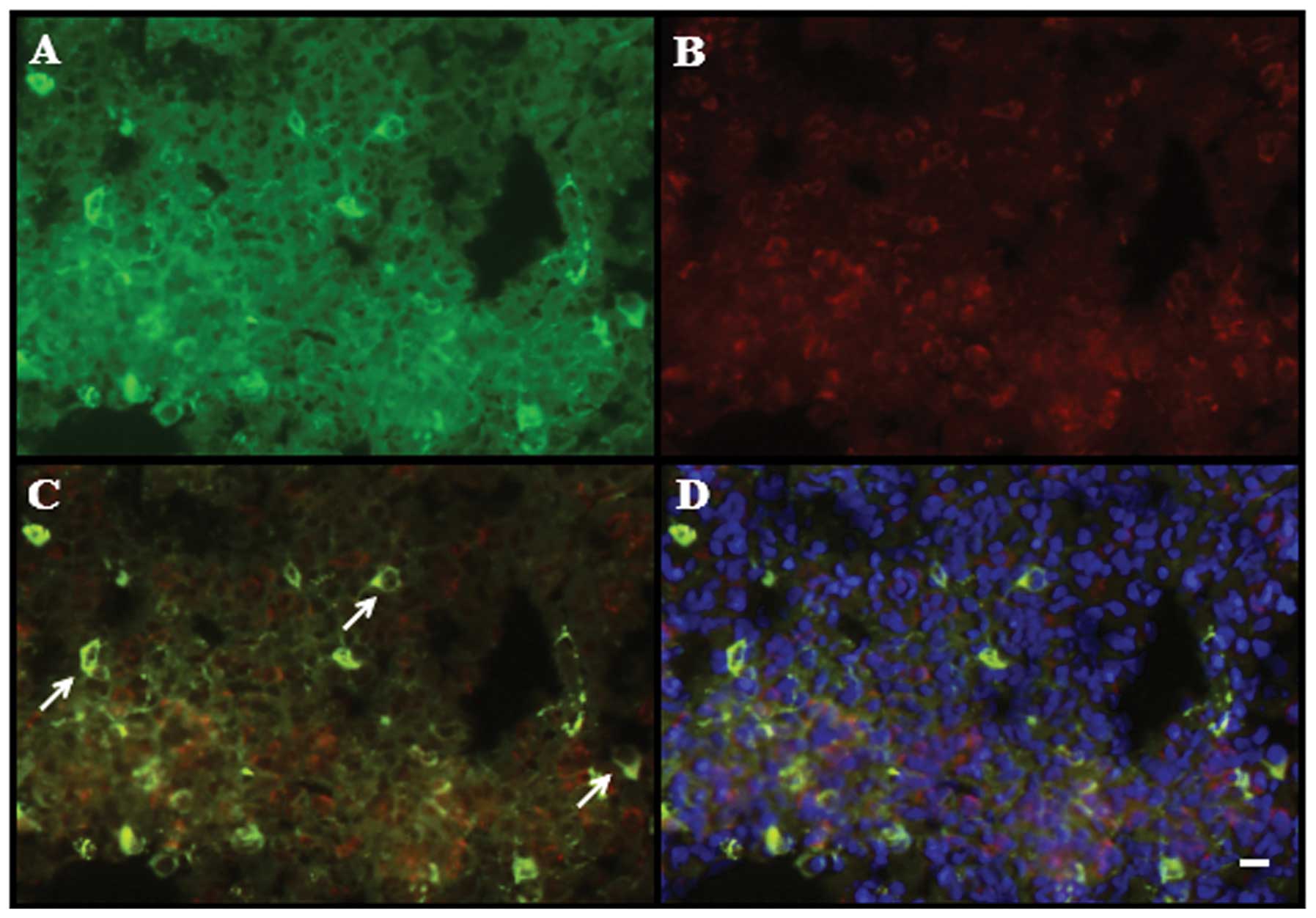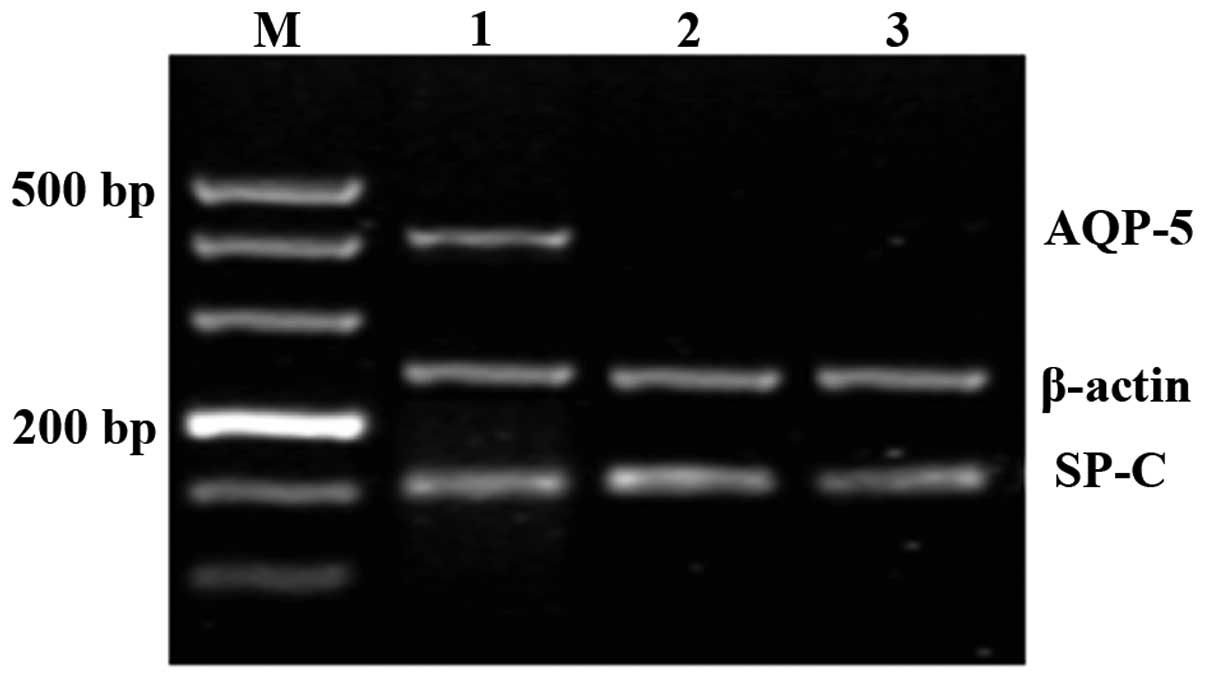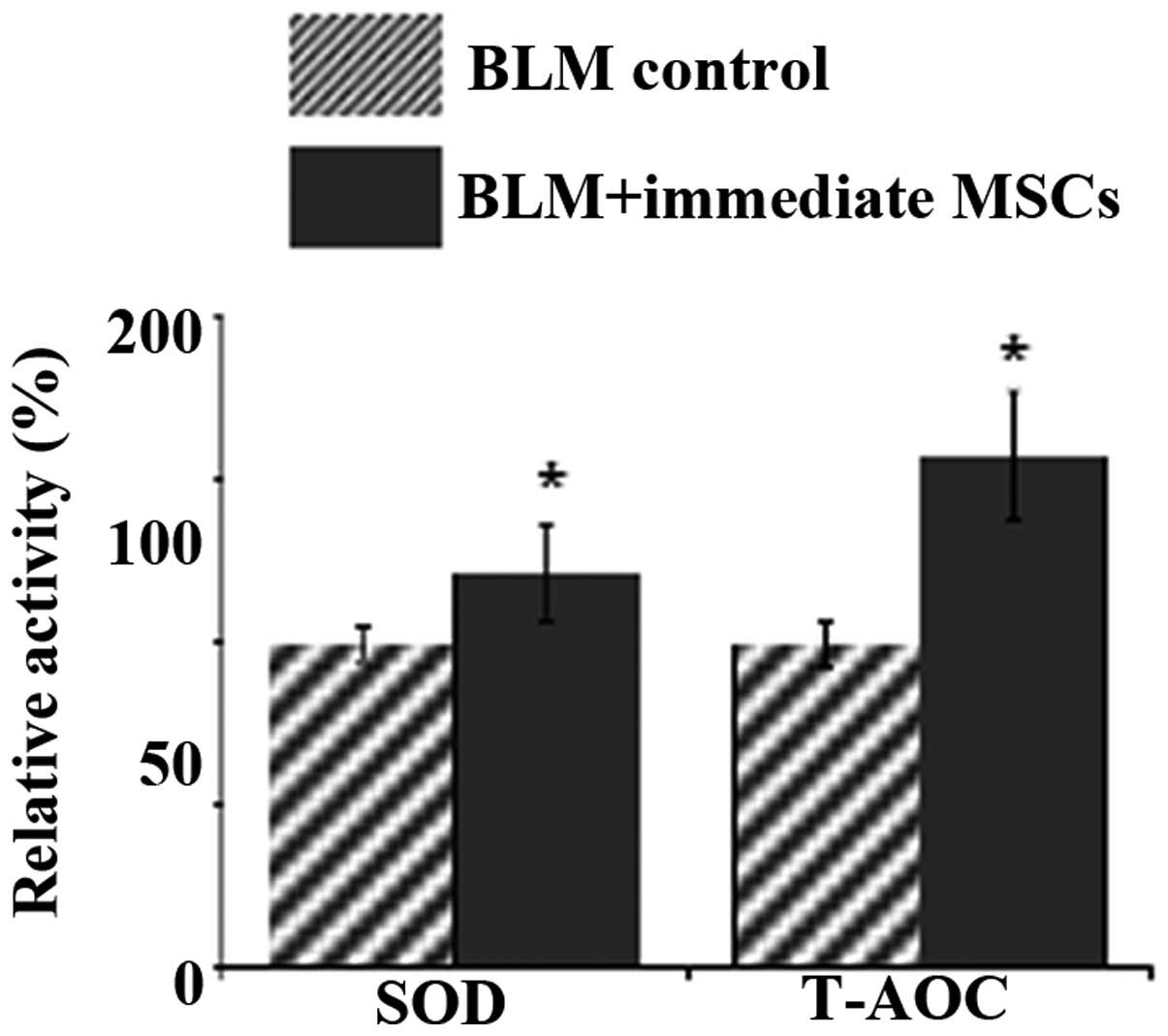|
1
|
Fernandez IE and Eickelberg O: New
cellular and molecular mechanisms of lung injury and fibrosis in
idiopathic pulmonary fibrosis. Lancet. 380:680–688. 2012.
View Article : Google Scholar : PubMed/NCBI
|
|
2
|
Crestani B, Marchand-Adam S, Fabre A,
Dehoux M and Soler P: Mechanisms in pulmonary fibrosis. Rev Prat.
57:2222–2226. 2007.(In French).
|
|
3
|
Nuovo GJ, Hagood JS, Magro CM, et al: The
distribution of immunomodulatory cells in the lungs of patients
with idiopathic pulmonary fibrosis. Mod Pathol. 25:416–433. 2012.
View Article : Google Scholar :
|
|
4
|
Starosta V, Ratjen F, Rietschel E, Paul K
and Griese M: Anti-inflammatory cytokines in cystic fibrosis lung
disease. Eur Respir J. 28:581–587. 2006. View Article : Google Scholar : PubMed/NCBI
|
|
5
|
Simonian PL, Roark CL, Born WK, O’Brien RL
and Fontenot AP: Gammadelta T cells and Th17 cytokines in
hypersensitivity pneumonitis and lung fibrosis. Transl Res.
154:222–227. 2009. View Article : Google Scholar : PubMed/NCBI
|
|
6
|
Tan HL, Regamey N, Brown S, et al: The
Th17 pathway in cystic fibrosis lung disease. Am J Respir Crit Care
Med. 184:252–258. 2011. View Article : Google Scholar : PubMed/NCBI
|
|
7
|
Okada M, Suzuki K, Matsumoto M, et al:
Effects of angiotensin on the expression of fibrosis-associated
cytokines, growth factors, and matrix proteins in human lung
fibroblasts. J Clin Pharm Ther. 34:288–299. 2009. View Article : Google Scholar : PubMed/NCBI
|
|
8
|
Ruan W and Ying K: Abnormal expression of
IGF-binding proteins, an initiating event in idiopathic pulmonary
fibrosis? Pathol Res Pract. 206:537–543. 2010. View Article : Google Scholar : PubMed/NCBI
|
|
9
|
Datta A, Scotton CJ and Chambers RC: Novel
therapeutic approaches for pulmonary fibrosis. Br J Pharmacol.
163:141–172. 2011. View Article : Google Scholar : PubMed/NCBI
|
|
10
|
Maher TM: Idiopathic pulmonary fibrosis:
pathobiology of novel approaches to treatment. Clin Chest Med.
33:69–83. 2012. View Article : Google Scholar : PubMed/NCBI
|
|
11
|
Sisson TH, Mendez M, Choi K, et al:
Targeted injury of type II alveolar epithelial cells induces
pulmonary fibrosis. Am J Respir Crit Care Med. 181:254–263. 2010.
View Article : Google Scholar :
|
|
12
|
Kliment CR and Oury TD: Oxidative stress,
extracellular matrix targets, and idiopathic pulmonary fibrosis.
Free Radic Biol Med. 49:707–717. 2010. View Article : Google Scholar : PubMed/NCBI
|
|
13
|
El-Khouly D, El-Bakly WM, Awad AS,
El-Mesallamy HO and El-Demerdash E: Thymoquinone blocks lung injury
and fibrosis by attenuating bleomycin-induced oxidative stress and
activation of nuclear factor Kappa-B in rats. Toxicology.
302:106–113. 2012. View Article : Google Scholar : PubMed/NCBI
|
|
14
|
Cheresh P, Kim SJ, Tulasiram S and Kamp
DW: Oxidative stress and pulmonary fibrosis. Biochim Biophys Acta.
1832.1028–1040. 2012.
|
|
15
|
Lu TH, Chen CH, Lee MJ, et al:
Methylmercury chloride induces alveolar type II epithelial cell
damage through an oxidative stress-related mitochondrial cell death
pathway. Toxicol Lett. 194:70–78. 2010. View Article : Google Scholar : PubMed/NCBI
|
|
16
|
Shi C: Recent progress toward
understanding the physiological function of bone marrow mesenchymal
stem cells. Immunology. 136:133–138. 2012. View Article : Google Scholar : PubMed/NCBI
|
|
17
|
Charbord P: Bone marrow mesenchymal stem
cells: historical overview and concepts. Hum Gene Ther.
21:1045–1056. 2010. View Article : Google Scholar : PubMed/NCBI
|
|
18
|
Daba MH, El-Tahir KE, Al-Arifi MN and
Gubara OA: Drug-induced pulmonary fibrosis. Saudi Med J.
25:700–706. 2004.PubMed/NCBI
|
|
19
|
Kan I, Melamed E and Offen D: Integral
therapeutic potential of bone marrow mesenchymal stem cells. Curr
Drug Targets. 6:31–41. 2005. View Article : Google Scholar : PubMed/NCBI
|
|
20
|
Jiang Y, Jahagirdar BN, Reinhardt RL, et
al: Pluripotency of mesenchymal stem cells derived from adult
marrow. Nature. 418:41–49. 2002. View Article : Google Scholar : PubMed/NCBI
|
|
21
|
Kotton DN, Ma BY, Cardoso WV, et al: Bone
marrow-derived cells as progenitors of lung alveolar epithelium.
Development. 128:5181–5188. 2001.PubMed/NCBI
|
|
22
|
Ortiz LA, Gambelli F, McBride C, et al:
Mesenchymal stem cell engraftment in lung is enhanced in response
to bleomycin exposure and ameliorates its fibrotic effects. Proc
Natl Acad Sci USA. 100:8407–8411. 2003. View Article : Google Scholar : PubMed/NCBI
|
|
23
|
Mora AL and Rojas M: Aging and lung injury
repair: a role for bone marrow derived mesenchymal stem cells. J
Cell Biochem. 105:641–647. 2008. View Article : Google Scholar : PubMed/NCBI
|
|
24
|
Li HP, Li X, He GJ, Yi XH and Kaplan AP:
The influence of dexamethasone on the proliferation and apoptosis
of pulmonary inflammatory cells in bleomycin-induced pulmonary
fibrosis in rats. Respirology. 9:25–32. 2004. View Article : Google Scholar : PubMed/NCBI
|
|
25
|
Padilla-Nash HM, Barenboim-Stapleton L,
Difilippantonio MJ and Ried T: Spectral karyotyping analysis of
human and mouse chromosomes. Nat Protoc. 1:3129–3142. 2006.
View Article : Google Scholar
|
|
26
|
Zhao F, Zhang YF, Liu YG, et al:
Therapeutic effects of bone marrow-derived mesenchymal stem cells
engraftment on bleomycin-induced lung injury in rats. Transplant
Proc. 40:1700–1705. 2008. View Article : Google Scholar : PubMed/NCBI
|
|
27
|
Feng SW, Yao XL, Li Z, et al: In vitro
bromodeoxyuridine labeling of rat bone marrow-derived mesenchymal
stem cells. Di Yi Jun Yi Da Xue Xue Bao. 25:184–186. 2005.(In
Chinese). PubMed/NCBI
|
|
28
|
Dominici M, Le Blanc K, Mueller I, et al:
Minimal criteria for defining multipotent mesenchymal stromal
cells. The International Society for Cellular Therapy position
statement. Cytotherapy. 8:315–317. 2006. View Article : Google Scholar : PubMed/NCBI
|
|
29
|
Li X, Zhang Y and Qi G: Evaluation of
isolation methods and culture conditions for rat bone marrow
mesenchymal stem cells. Cytotechnology. 65:323–334. 2013.
View Article : Google Scholar :
|
|
30
|
Szapiel SV, Elson NA, Fulmer JD,
Hunninghake GW and Crystal RG: Bleomycin induced interstitial
pulmonary disease in the nude, athymic mouse. Am Rev Respir Dis.
120:893–899. 1979.PubMed/NCBI
|
|
31
|
Tanaka K, Ishihara T, Azuma A, et al:
Therapeutic effect of lecithinized superoxide dismutase on
bleomycin-induced pulmonary fibrosis. Am J Physiol Lung Cell Mol
Physiol. 298:L348–L360. 2010. View Article : Google Scholar
|
|
32
|
Narahara M, Yamada A, Hamada-Kanazawa M,
Kawai Y and Miyake M: cDNA cloning of the Sry-related gene Sox6
from rat with tissue-specific expression. Biol Pharm Bull.
25:705–709. 2002. View Article : Google Scholar : PubMed/NCBI
|
|
33
|
Liu J, Wang X, Wang F, Teng L and Cao J:
Attenuation effects of heparin-superoxide dismutase conjugate on
bleomycin-induced lung fibrosis in vivo and radiation-induced
inflammatory cytokine expression in vitro. Biomed Pharmacother.
63:484–491. 2009. View Article : Google Scholar
|
|
34
|
Wei X, Liu H, Sun X, et al: Hydroxysafflor
yellow A protects rat brains against ischemia-reperfusion injury by
antioxidant action. Neurosci Lett. 386:58–62. 2005. View Article : Google Scholar : PubMed/NCBI
|
|
35
|
Qi HP, Wei SQ, Gao XC, et al:
Ursodeoxycholic acid prevents selenite-induced oxidative stress and
alleviates cataract formation: In vitro and in vivo studies. Mol
Vis. 18:151–160. 2012.PubMed/NCBI
|
|
36
|
Bowden DH: Unraveling pulmonary fibrosis:
the bleomycin model. Lab Invest. 50:487–488. 1984.PubMed/NCBI
|
|
37
|
Wang D, Haviland DL, Burns AR, Zsigmond E
and Wetsel RA: A pure population of lung alveolar epithelial type
II cells derived from human embryonic stem cells. Proc Natl Acad
Sci USA. 104:4449–4454. 2007. View Article : Google Scholar : PubMed/NCBI
|
|
38
|
Wang D, Morales JE, Calame DG, Alcorn JL
and Wetsel RA: Transplantation of human embryonic stem cell-derived
alveolar epithelial type II cells abrogates acute lung injury in
mice. Mol Ther. 18:625–634. 2010. View Article : Google Scholar : PubMed/NCBI
|
|
39
|
Kapanci Y, Weibel ER, Kaplan HP and
Robinson FR: Pathogenesis and reversibility of the pulmonary
lesions of oxygen toxicity in monkeys. II. Ultrastructural and
morphometric studies. Lab Invest. 20:101–118. 1969.PubMed/NCBI
|
|
40
|
Castranova V, Rabovsky J, Tucker JH and
Miles PR: The alveolar type II epithelial cell: a multifunctional
pneumocyte. Toxicol Appl Pharmacol. 93:472–483. 1988. View Article : Google Scholar : PubMed/NCBI
|
|
41
|
Fehrenbach H: Alveolar epithelial type II
cell: defender of the alveolus revisited. Respir Res. 2:33–46.
2001. View Article : Google Scholar : PubMed/NCBI
|
|
42
|
Emura M, Ochiai A, Singh G, et al: In
vitro reconstitution of human respiratory epithelium. In Vitro Cell
Dev Biol Anim. 33:602–605. 1997. View Article : Google Scholar : PubMed/NCBI
|
|
43
|
Jiang Y, Jahagirdar BN, Reinhardt RL, et
al: Pluripoteney of mesenehymal stem cells derived from adult
marrow. Nature. 418:41–49. 2002. View Article : Google Scholar : PubMed/NCBI
|
|
44
|
Ablin RJ: The need for personalized
therapy and companion diagnostics in prostate cancer. Biomark Med.
5:281–283. 2011. View Article : Google Scholar : PubMed/NCBI
|
|
45
|
Caspary WJ, Lanzo DA and Niziak C: Effect
of deoxyribonucleic acid on the production of reduced oxygen by
bleomycin and iron. Biochemistry. 21:334–338. 1982. View Article : Google Scholar : PubMed/NCBI
|



















